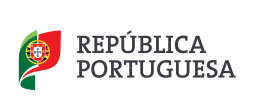Politics of Curatorship
Spring Seminar 2025
07th to 09th of May
School of Arts, Universidade Católica Portuguesa
Call for Papers: until 21st of Feb
Extended deadline: 03rd of Mar
Format: In-person
Language: English
Proposal submissions must be made through this link.
Submission requirements:
Title
Abstract (< 1000 caracteres)
Biographical note (< 1000 characters)
+info: springseminar.arts@ucp.pt




